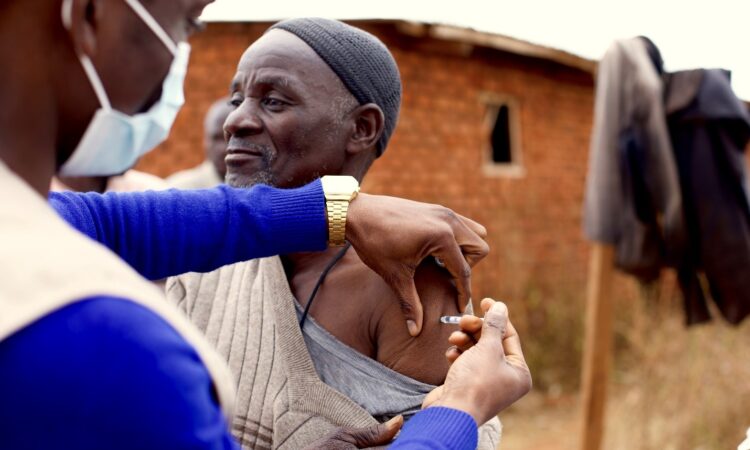
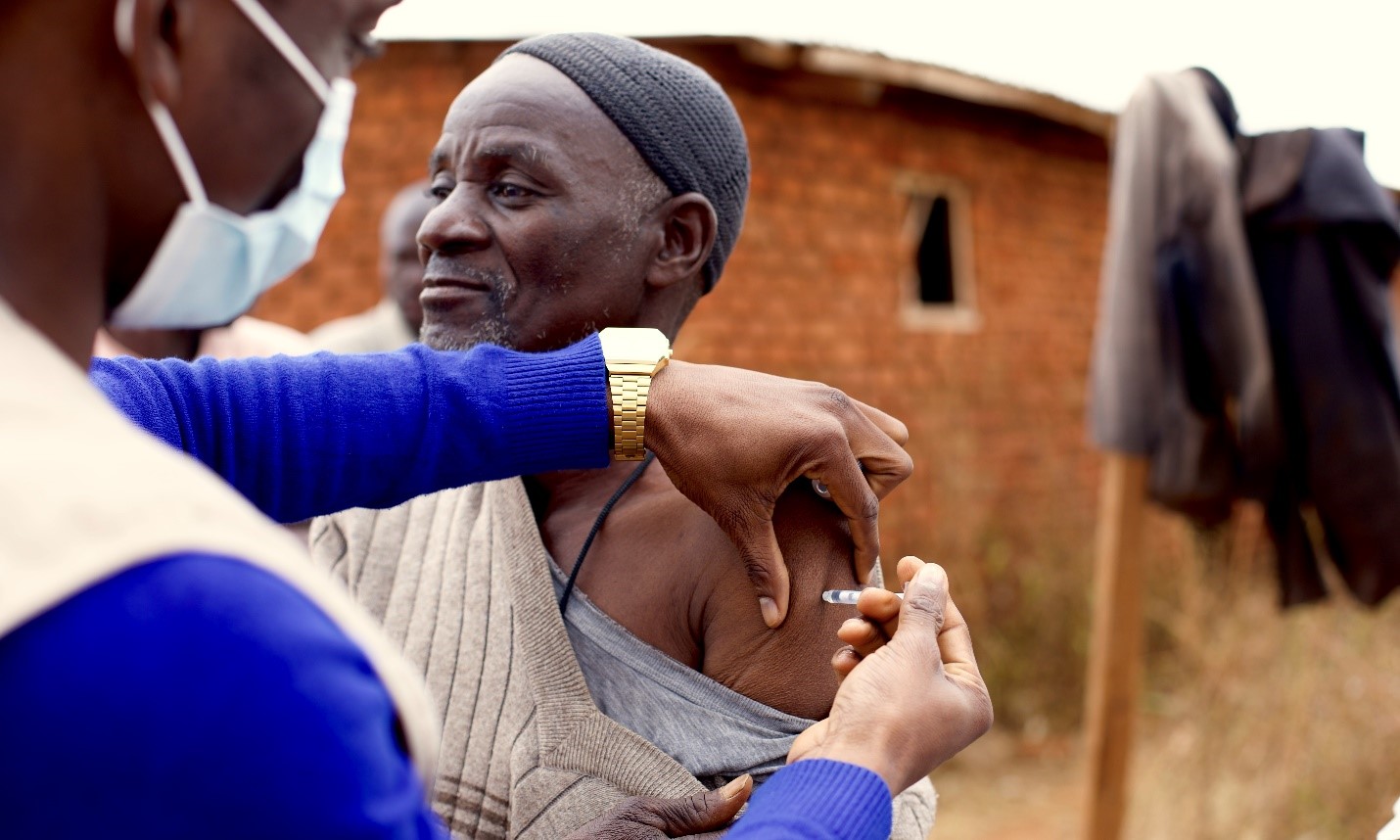 Jafarasa Sadat, the provincial lead of the Expanded Programme on Immunization, administers the last shot of the day to Jauado Alifa, a community leader at Malica, a settlement for internally displaced people in Mozambique. ©WHO
Jafarasa Sadat, the provincial lead of the Expanded Programme on Immunization, administers the last shot of the day to Jauado Alifa, a community leader at Malica, a settlement for internally displaced people in Mozambique. ©WHO
A €16 million grant to WHO from the European Union’s ECHO (European Civil Protection and Humanitarian Aid Operations) has helped raise COVID-19 vaccination rates in a group of countries in Africa where coverage levels were among the lowest in the world.
A major objective of the push is to make COVID-19 vaccination available to vulnerable groups such as the elderly, as well as populations displaced by conflict or natural disasters. The support is also building countries’ capacity to carry out vaccination programs, which can be leveraged to protect people from many other diseases.
With the extra boost that ECHO funds provided, Mozambique has now vaccinated nearly all its adults, and the other 14 countries are making strides that include raising vaccination rates, training health workers, developing strategy and policy and digitalizing data-collection systems.
The 18-month project began in June 2021 and runs through the end of this year, working in Burundi, Cameroon, Central African Republic, Chad, Democratic Republic of the Congo, Guinea, Liberia, Madagascar, Mali, Mozambique, Niger, Nigeria, Somalia,
South Sudan, and Sudan.
WHO’s effort is one piece of the larger EU Humanitarian Initiative in support of COVID-19 vaccination in Africa, which is providing €100 million to 41 projects in 34 countries. Many other organizations are participating in the initiative, including the International Organization for Migration, the International Committee of the Red Cross, UNICEF and the World Food Programme.
In this issue, see photos and stories highlighting WHO’s ECHO work inside camps for displaced people in Liberia, Mozambique, Nigeria and South Sudan.
More: ECHO: questions & answers
ECHO project increases COVID-19 vaccination in northeast Nigeria
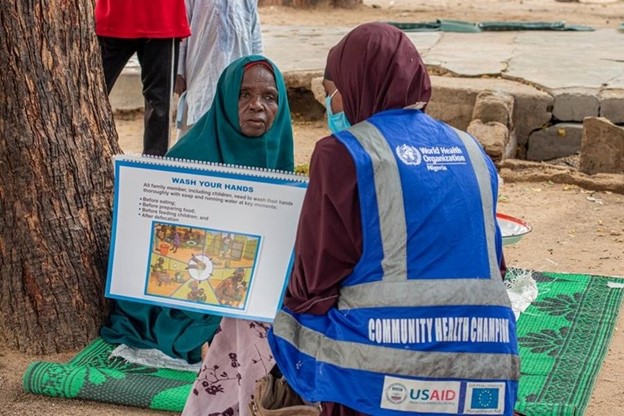 In Nigeria, a community volunteer explains the benefits of COVID-19 vaccination to internally displaced people. ©WHO
In Nigeria, a community volunteer explains the benefits of COVID-19 vaccination to internally displaced people. ©WHO
Hajara Maimuna Idi is sitting under a tree at the Gubio Road settlement for internally displaced people, in Borno State, northeast Nigeria. She is baffled by the reluctance of her fellow residents to get vaccinated for COVID-19, even though a vaccination centre is located within the settlement.
“I got vaccinated because I was made aware that it was for the benefit of my health. I didn’t want to be hospitalized because of COVID-19,” she said. “The sensitization team made us understand that the COVID-19 vaccination would help build our immune systems to fight the virus.”
Maimuna is one of the 43 community-based volunteers trained by WHO to mobilize their peers to get the vaccination. The volunteers hail from six densely populated host communities across three local government areas in Borno State.
Photo story: In Mozambique, WHO and ECHO team up with health workers to reach the most vulnerable
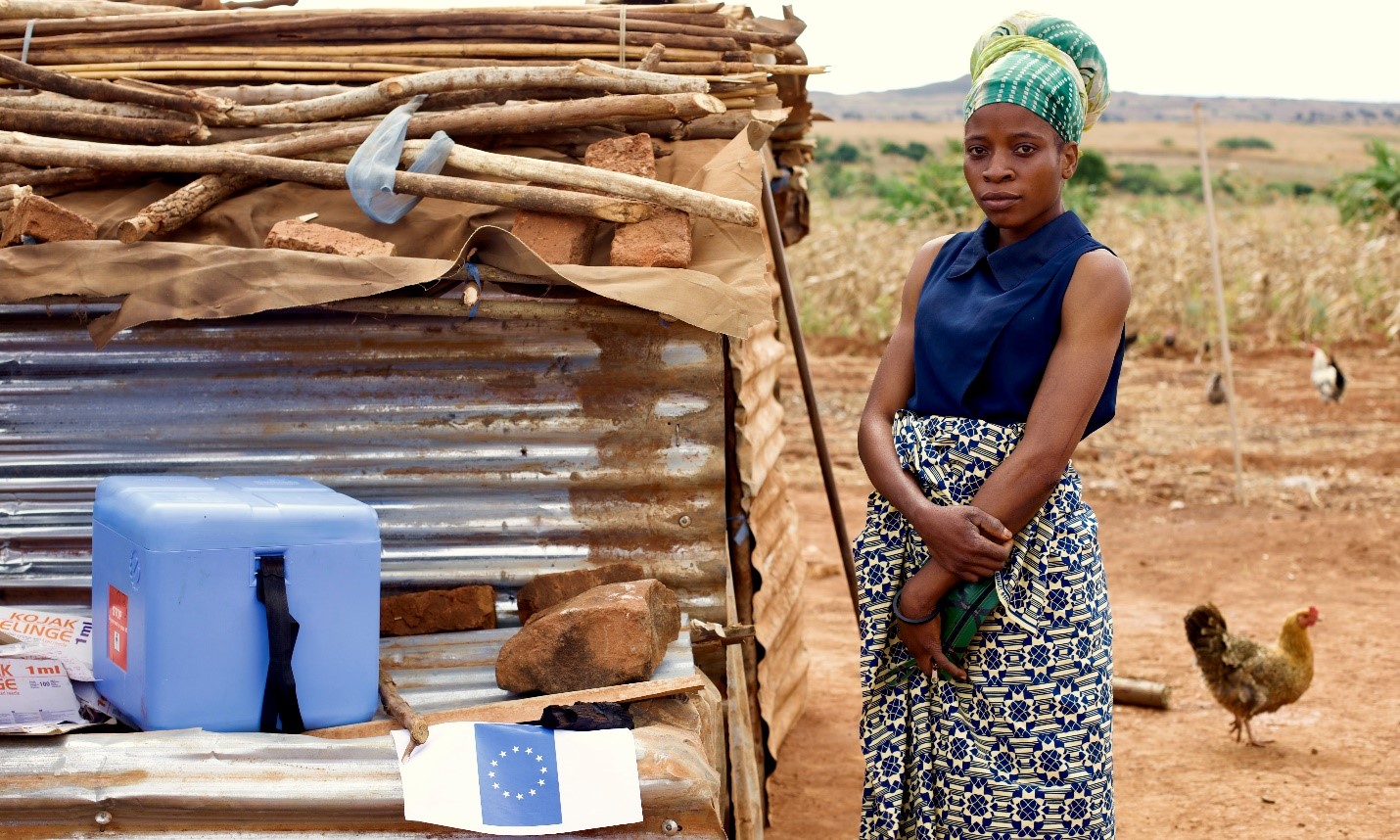 “I’m very happy about the visit from the team today because some people here in the community were never vaccinated,” said Julieta Jose, above, an internally displaced person in Mozambique. “It’s the best way to prevent COVID-19. I told everyone I know to come and get it.” ©WHO
“I’m very happy about the visit from the team today because some people here in the community were never vaccinated,” said Julieta Jose, above, an internally displaced person in Mozambique. “It’s the best way to prevent COVID-19. I told everyone I know to come and get it.” ©WHO
More: Mozambique vaccinates nearly all adults against COVID-19
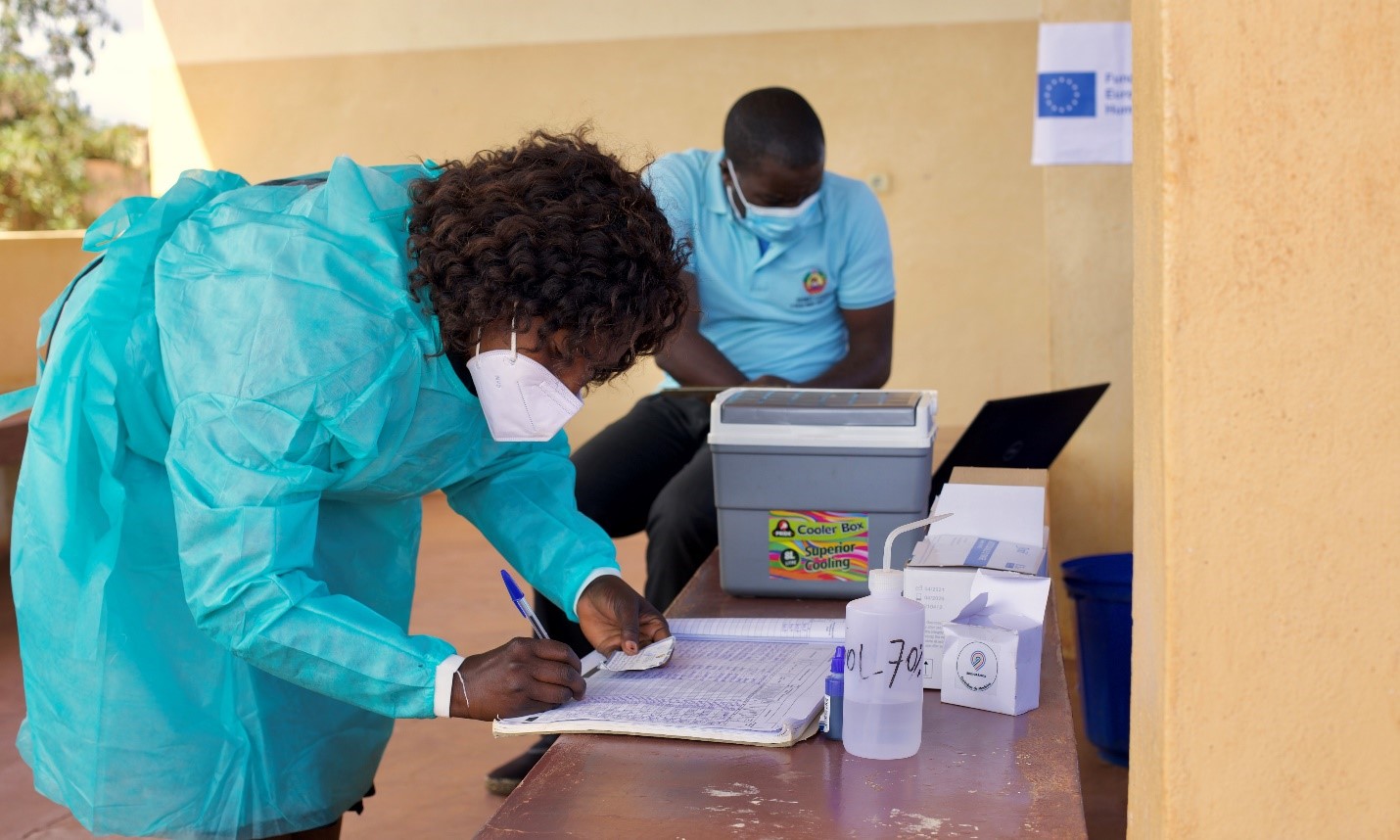 Data managers, immunization officers and district physicians in four provinces in Mozambique have been trained through the ECHO-funded initiative. ©WHO/J. Pereira
Data managers, immunization officers and district physicians in four provinces in Mozambique have been trained through the ECHO-funded initiative. ©WHO/J. Pereira
Photo story: In Liberia, refugees from Côte d’Ivoire step up for their COVID-19 vaccinations
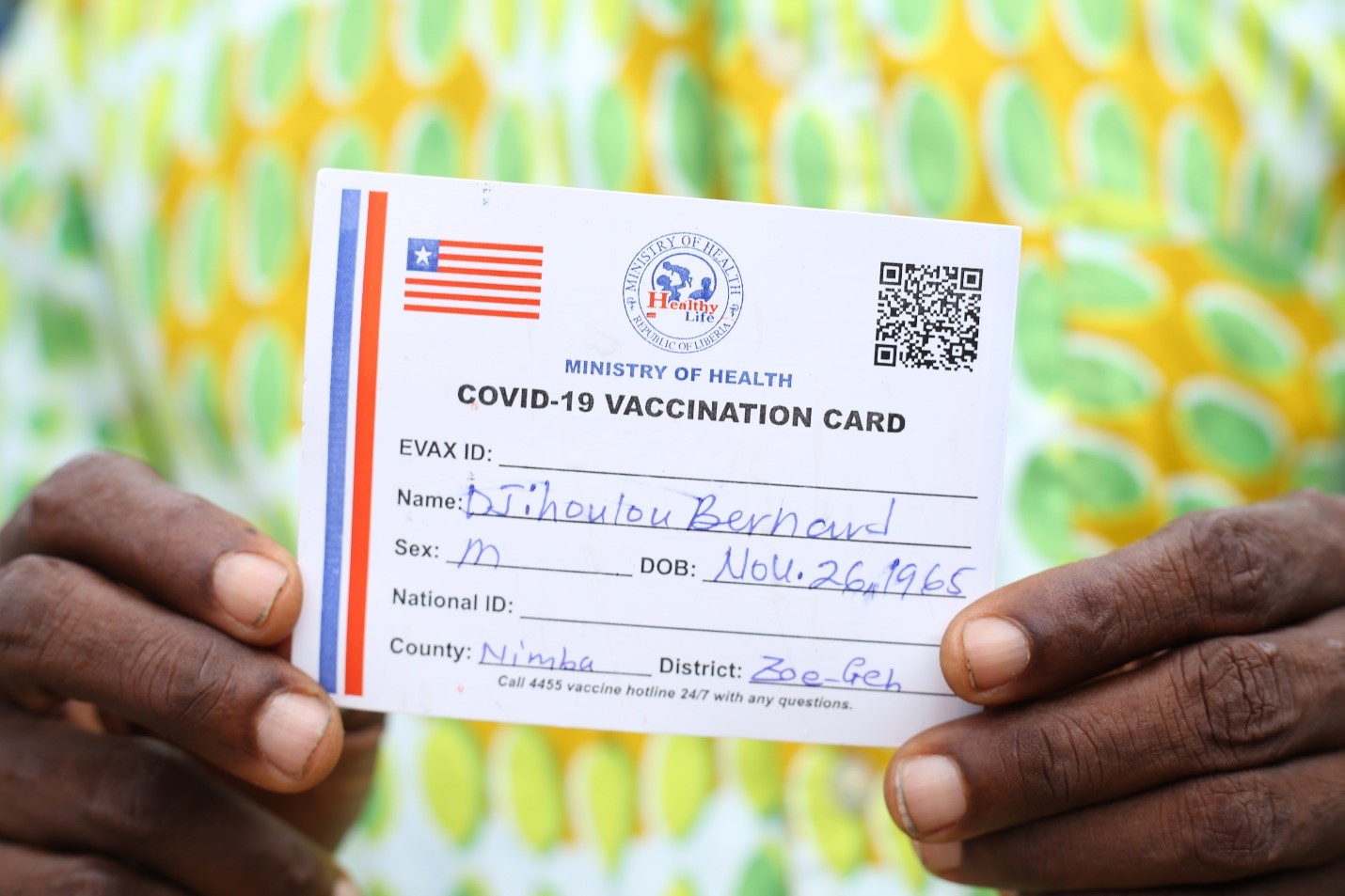 Bernard Manhan displays his vaccination card. The 57-year-old father of eight resides in Bahn refugee camp in Liberia. He fled violence in Côte d’Ivoire in 2011. ©WHO
Bernard Manhan displays his vaccination card. The 57-year-old father of eight resides in Bahn refugee camp in Liberia. He fled violence in Côte d’Ivoire in 2011. ©WHO
Liberia’s vaccination campaigns are prioritizing the most vulnerable: health workers, adults over 60, people with illnesses, refugees and other displaced people.
“Our target is to make sure that more people in the community get vaccinated. That way we will all be safe,” says Oretha Vanwen, a community health worker who administers COVID-19 vaccines to refugees and to members of the host community.
In South Sudan, a vaccination drive involves a camp and its host community
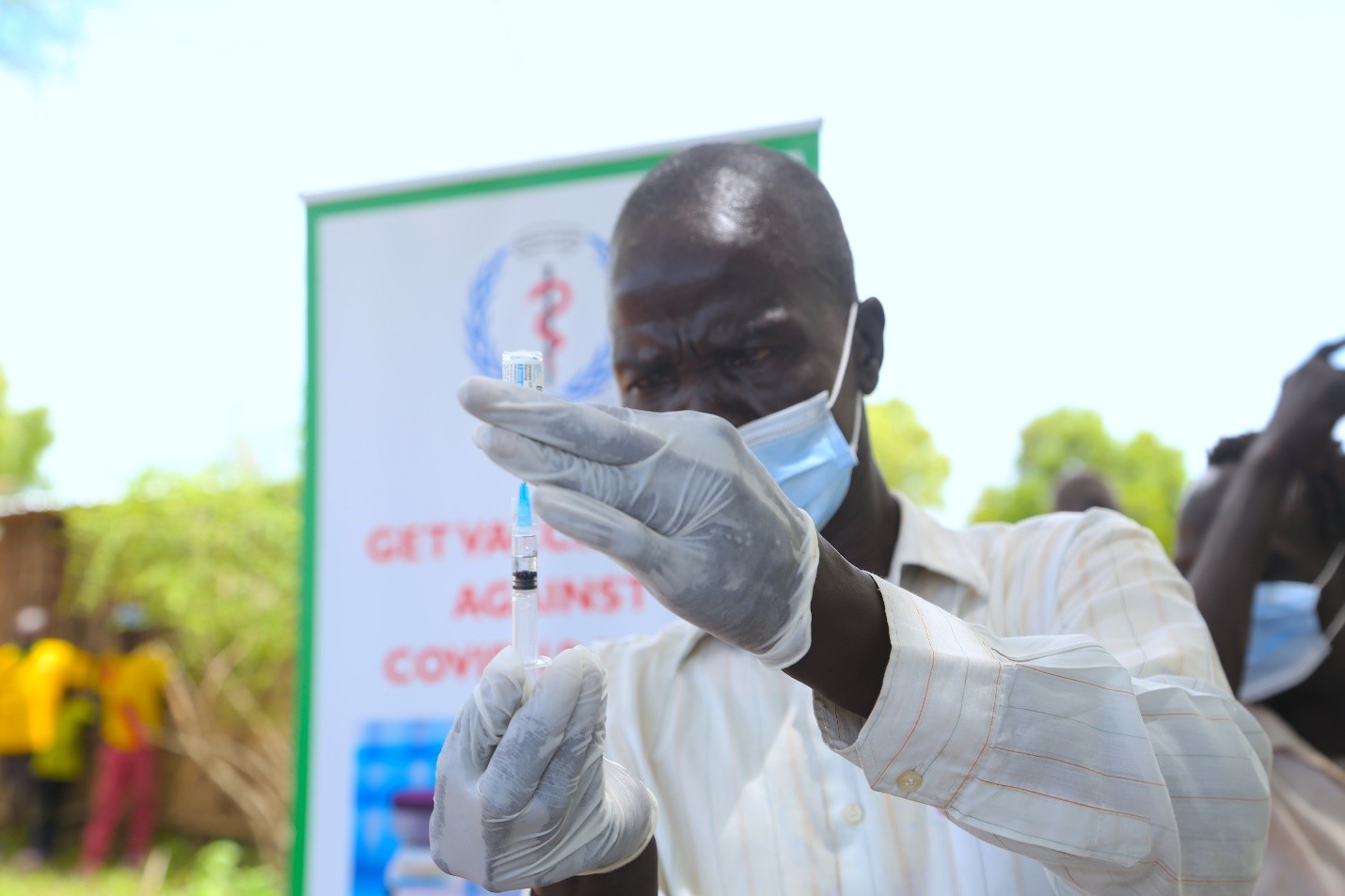 Paul Pitia Alberto, a clinical nurse prepares COVID-19 shots at the Mangalla camp. ©WHO/South Sudan
Paul Pitia Alberto, a clinical nurse prepares COVID-19 shots at the Mangalla camp. ©WHO/South Sudan
Bornalia Kuajo Peter, a community leader in Mangalla, got his COVID-19 vaccination in front of a crowd to make a point.
“I have taken one in front of you as assurance as your sub-chief that these vaccines are safe, especially for old people like us,” he said. “In my area, most people are aged 50 and above, so I urge you all to come and take the vaccine.”
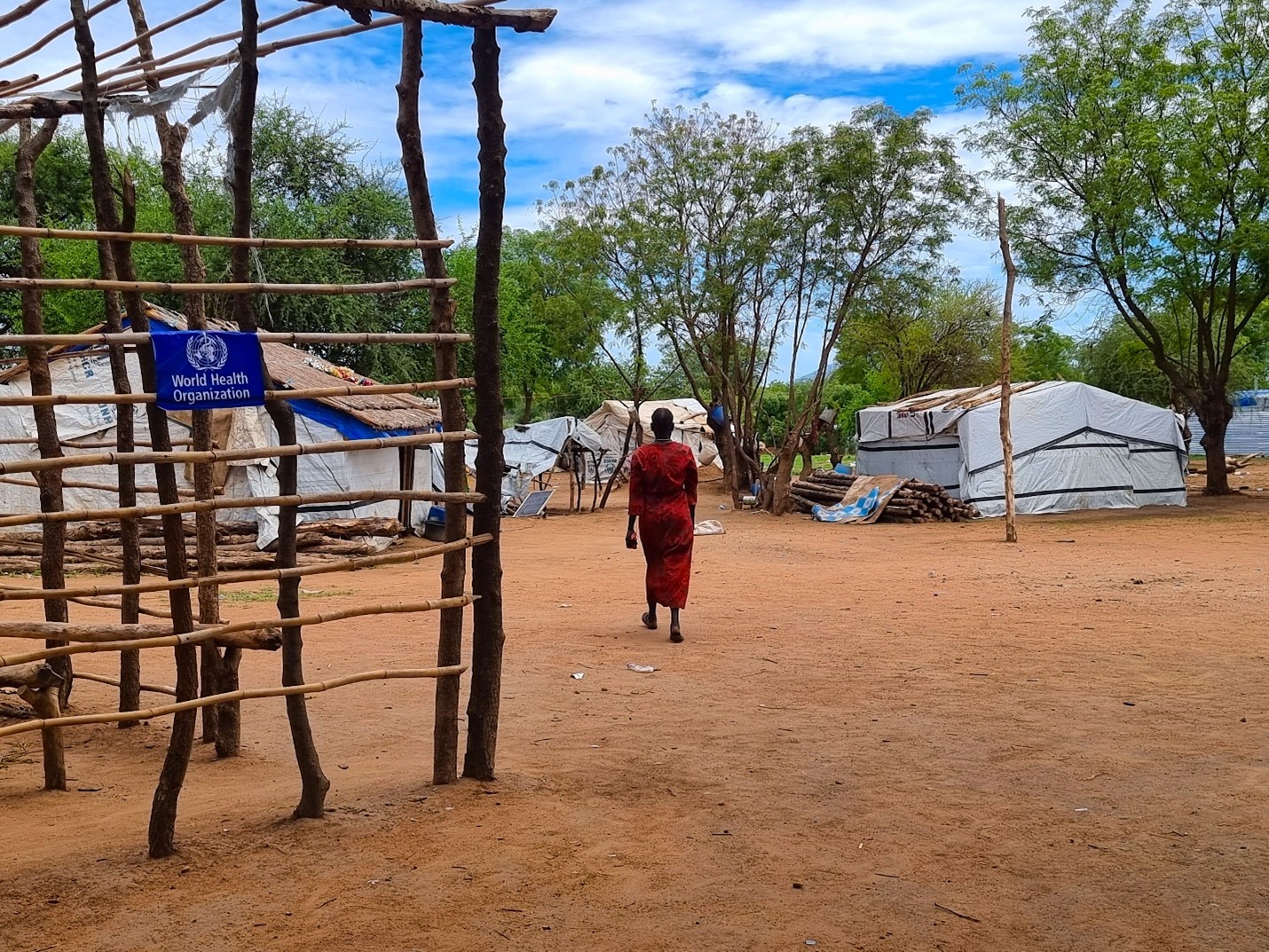 Bringing COVID-19 vaccination to settlements like Mangalla spares residents from having to make expensive cross-country trips. ©WHO/South Sudan
Bringing COVID-19 vaccination to settlements like Mangalla spares residents from having to make expensive cross-country trips. ©WHO/South Sudan
***
WHO thanks all governments, organizations and individuals who are contributing to the Organization’s work, and in particular those who have provided fully flexible contributions to maintain a strong, independent WHO.
Donors and partners featured in this week’s stories include the European Commission’s Directorate-General for European Civil Protection International Organization for Migration, the International Committee of the Red Cross, UNICEF and the World Food Programme.
The work described in these stories is made possible by a €16 million contribution to WHO from the European Commission’s Directorate-General for European Civil Protection and Humanitarian Aid Operations (ECHO).






